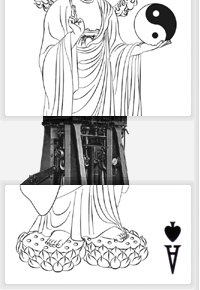I tried, under the pseudonym of Bismarck, to post a set of Comments in the blog Civic China: http://www.civicchina.com/?p=51. The bloggers have undertaken to collect a basic set of facts on the Tibet Crisis, which may form, in their opinion, a reasonable basis for dialogue among various parties and positions. An admirable effort indeed. But I am tempted, as a contrarian often is, to offer a slightly different perspective on these (and other omitted) facts. Hence my Comments. The version ensuing is a slight revision of the one I posted - revised chiefly for typograhical and stylistic reasons.
COMMENTS:
1. It is constructive to try to lay out a basic set of facts, whereon commentators should have reason to rely. But how the facts are laid out and elaborated upon, is itself not a neutral matter. Suppose, e.g., that a list be drawn up, where all publicly available eyewitness accounts and reporters' reports (including official ones) be documented; and that the ways be detailed, in which these accounts and reports have been used, or IGNORED, by each major medium. I am sure this exercise would paint a slightly different picture, as to what is at stake in the current War on Credibility at the international scale.
2. Many facts given in the list posted in this blog concern China, and how Chinese tend to think or mis-think. Wouldn't it be equally interesting - and constructive - to try to depict how people in many Western countries tend to think or mis-think, beyond the simple, and very trite, assertion, that the world hopes to see more human rights progress in the PRC? For instance, it wouldn't be too far-fetching to suggest, that many enthusiastic protesters in the West seem to follow quite routinely the FORMULAIC thought of "protest - crackdown," regardless of what really happened on the ground. The question - What would have you done, were you put in charge of the situation in Tibet? - is rarely put to this group, by itself or by others. Hark, and you would rarely hear the word ORDER or SECURITY uttered in this community; but only such words as VIOLENCE, CRACKDOWN, HUMAN RIGHTS ABUSES. I think this is largely a fact, a fact that is as interesting to mention, as it is worth the studying: Through what lens indeed do these Westerners look at the world?
3. Perhaps we may further list, and investigate, the following fact: Is there a general DO-GOODER IMPULSE among these Western protesters, such that what they are really concerned about is not whether China as a country may progress in small but concrete steps, but whether a certain incident can give them yet another opportunity to vent their righteous anger at the rest of the world - it being this time the PRC?
4. Further down the road, we may even list, and investigate: What sort of picture of China have these Western protesters in mind, when they begin to make various assertions on the country? What indeed, does the phrase "communist China" conjure up in their imagination? What have they read, and heard, of the country, and in what ways have these readings and hearings affected their perception of it?
5. We should not touch on these topics too lightly, let alone omit them; for every misunderstanding must needs involve at least two parties, it being not obvious that it must be the one, rather than the other, that has contributed the greater part to it.
6. Your constructive attempt to list a basic set of facts for public commenting is very much to be recommended. At the end, it should help every reader to ask, hopefully also to answer, the question: What is to be done?
7. But that question should have been asked in the very first place, when riot broke out on March 14. Each and every protester in the West should have been asked this question. Many, I surmise, might have offered again the formulaic terms for an answer: Stop the violence; Respect human rights; etc. etc. But let's call this a FACT: Such formulaic terms as these could NEVER point to any concrete way to restore ORDER and SECURITY in a time of CRISIS. So the so-called answer would be no answer at all. We may put the question again: What, sir, is to be done, concretely?
8. We do NOT debase the dignity of human rights. It is an ideal that should guide the progress of China in many ways. And yet, it can also become the basis of the DO-GOODER IMPULSE of those, who need not confront the life and death of many citizens, innocent or not, in a MOMENT OF DECISION.
9. Not as a fact perhaps, but as a MAXIM, that the following ought to be proposed: No do-gooder impulse should be granted the moral high-ground, if he who has it refuses to contemplate the practical questions of order, of security, and of governance in critical times.
10. I have perhaps roamed a little away from the idea of collecting facts. But as I suggested at the outset, the laying out of facts is no neutral matter. Facts not only inform; they guide. And I believe that a slightly different structure is needed here, in order to guide the reader to ask certain questions which the present laying-out might not help him to. In sum, two things: (a) What sort of mind-set is driving Western perception of China, and where does it come from?(b) What action would have been taken, if a concerned commentator (protester included) were put in charge of the situation? With these two rubrics in mind, we may revisit the many facts listed in this post, as well as those that are yet to be collected and analyzed. Thank you.
My Comments on the Tibet Crisis posted in Civic China
標籤:
Y.T.
訂閱:
發佈留言 (Atom)



0 留言:
發佈留言